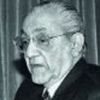As politicians cannot usurp power, judges must not too
It merits close study in South Asia given its relevance to any parliamentary democracy.
Enemies of the people,” shrieked the Daily Mail earlier this year when judges ruled that the British government cannot invoke Article 50 of the European Union Treaty without parliament's sanction. The more recent unanimous ruling of its supreme court — that Prime Minister Boris Johnson's advice to the queen to prorogue parliament was bad in law and void — has incurred criticism in some quarters of the UK. It merits close study in South Asia given its relevance to any parliamentary democracy.
Governments cry “judicial intrusion in the political realm” whenever they suffer defeat in the highest court of the land on a constitutional question with political consequences. But the doctrine of “political question” has been rejected even in the country of its origin — the US. If the issue before the apex court turns on the interpretation of its constitution, the court will not decline to judge the issue because its verdict may have political consequences. The problem arises when judges deliberately ignore — or, worse still, flout — the limits of their office to deliver rulings that reflect their subjective preferences.
India underwent a similar experience in the last century when its supreme court ruled in the Golak Nath case that even a unanimous vote of parliament cannot amend the chapter on fundamental rights, although there was no bar on this in the constitution itself. The first attorney general of India predicted that the ruling would invite packing the supreme court with pliant judges.
In April 1973, the supreme court retrieved the balance. Fundamental rights are amendable like any other, provided that the “basic structure” of the constitution is not affected.
This has an amusing aftermath. Two senior lawyers in India and Pakistan each claimed authorship of the basic structure doctrine. Neither enjoyed respect in his country for integrity. Its real author was Dieter Conrad of the University of Heidelberg. He was influenced by his country’s history. In 1975, the apex court nullified laws which sought to give Indira immunity from the reach of electoral laws on abuse of state power to promote a candidate’s interests. This had two consequences. Indira did not pursue a constitutional amendment, which gave her immunity from the reach of criminal laws. Meanwhile, she had inflicted a blow on the supreme court from which it has still not recovered. The very day after the court decided the fundamental rights case, in April 1973, she appointed a new chief justice of India (CJI) in supersession of three of his seniors. The supreme court took its revenge in 1993 by setting up a “collegium” comprising its own judges to select judges of the superior courts and decide on transfers.
The collegium has no sanction in the constitution. It rests on the ipse dixit of judges. In practice, it is a farce. As Robert Stevens wrote in The English Judges, “Judges choosing judges is the antithesis of democracy”.
There was a deep divide in India then, which has lasted. The supreme court's July 1991 ruling in the case of the chief justice of the Madras High Court is atrocious. The Central Bureau of Investigation had registered a case against him under the Prevention of Corruption Act, 1947. The court ruled that no criminal case concerning corruption can be registered against a sitting judge without the prior consent of the CJI.
The CJI was invested with infallibility. No other country in the world has built such a wall. Almost from the beginning, this court has been a lawmaker, albeit, in Holmes’s expression, ‘interstitial’ lawmaker. Indeed, the court’s role today is much more. It is expanding beyond dispute settling and interstitial lawmaking. It is a problem solver in the nebulous areas.”
This is a naked usurpation of power opposed to the constitution and the rule of law on which it rests. It subverts both and democracy itself. It has survived still for 28 years, thanks to a supine bar and media. Usurpation of power by judges must be resisted as much as those by politicians.
By arrangement with Dawn



















